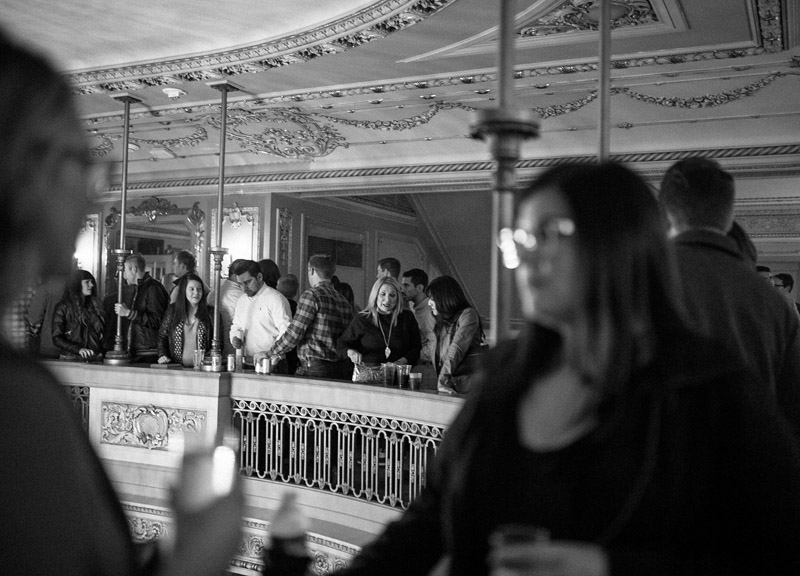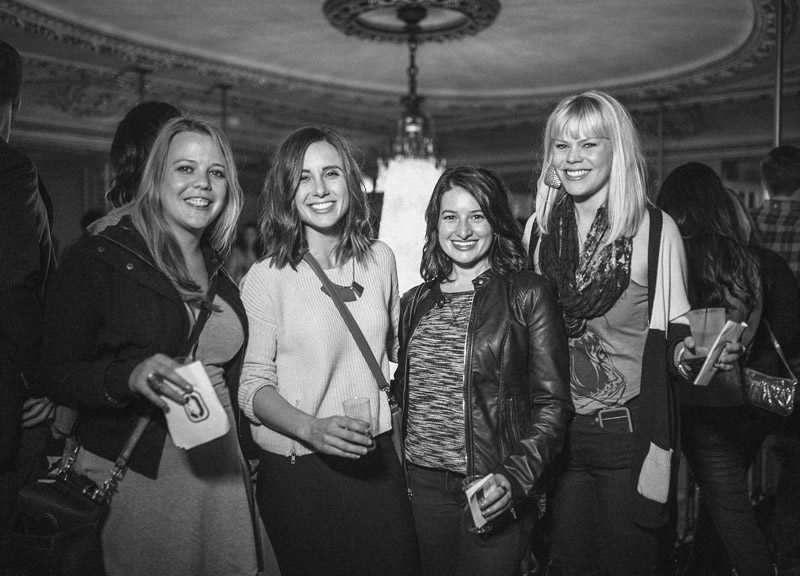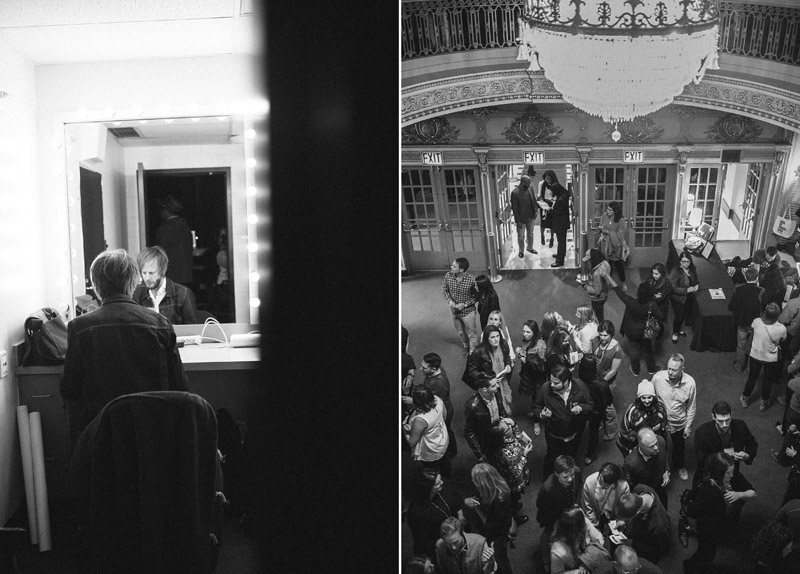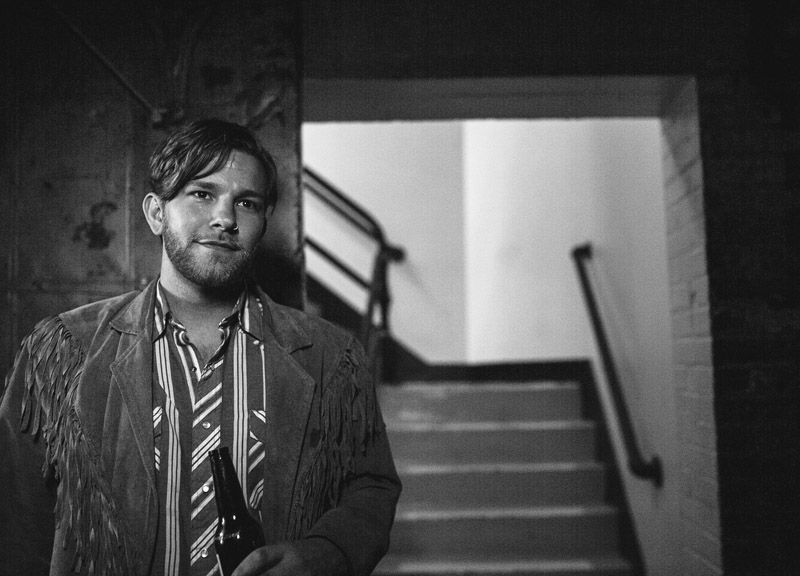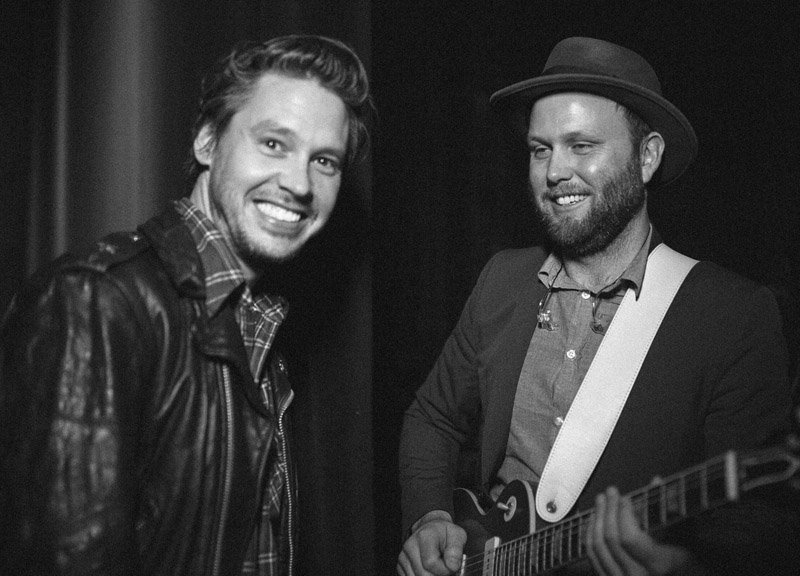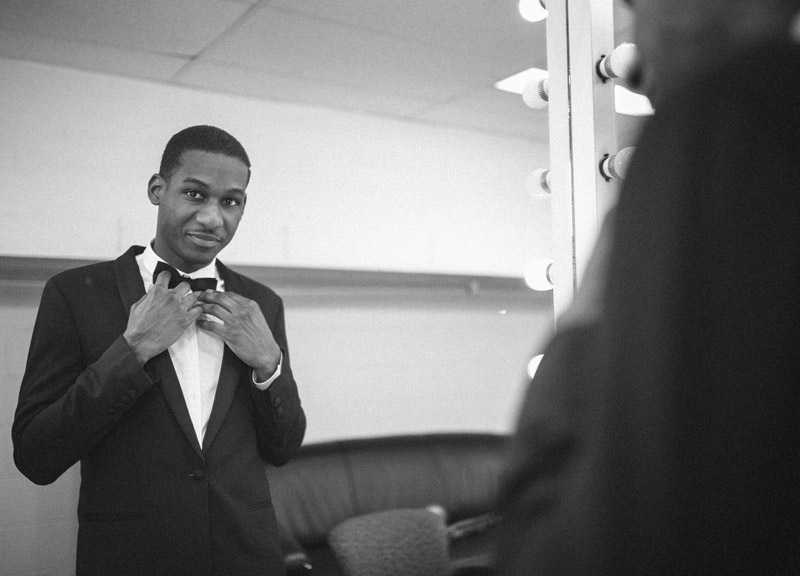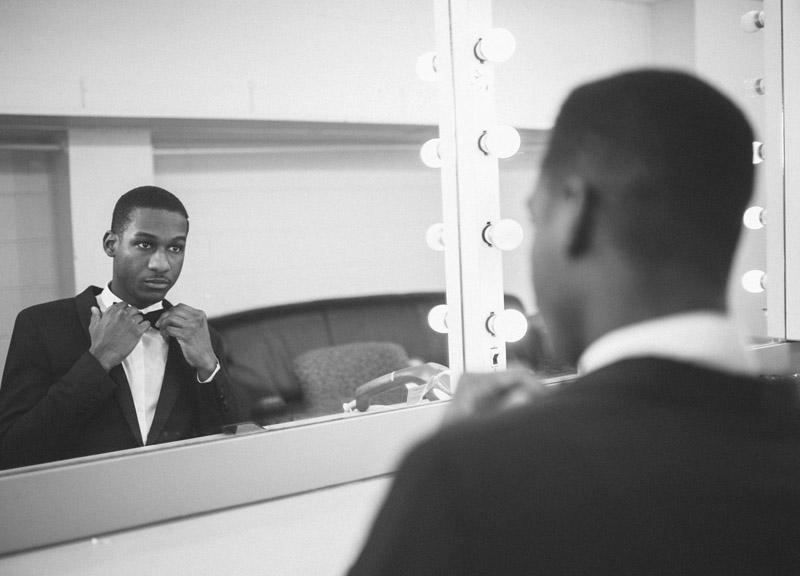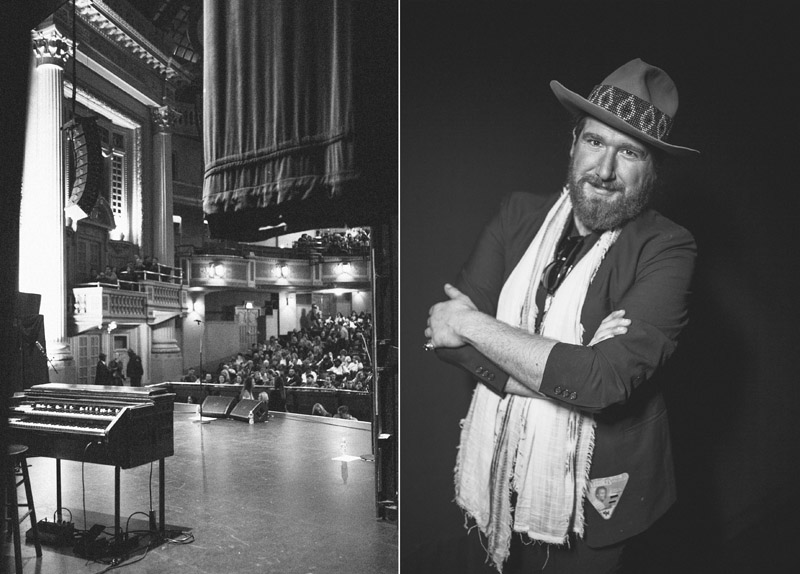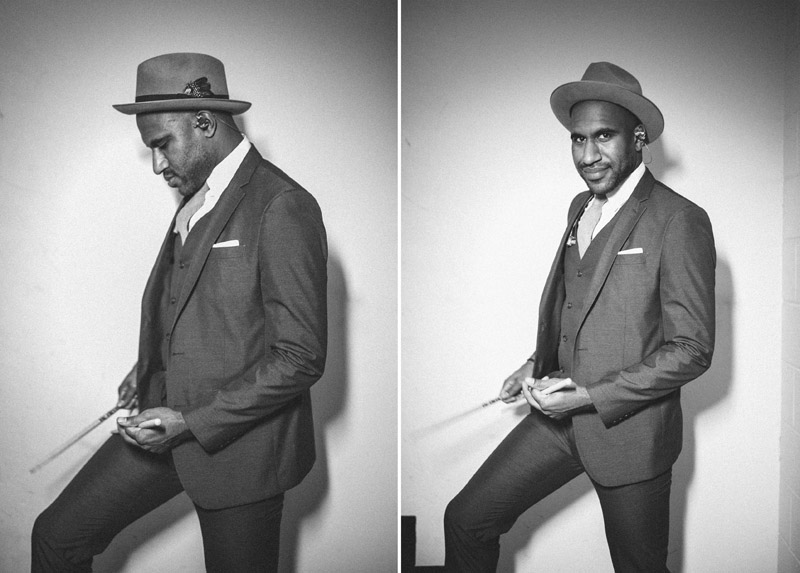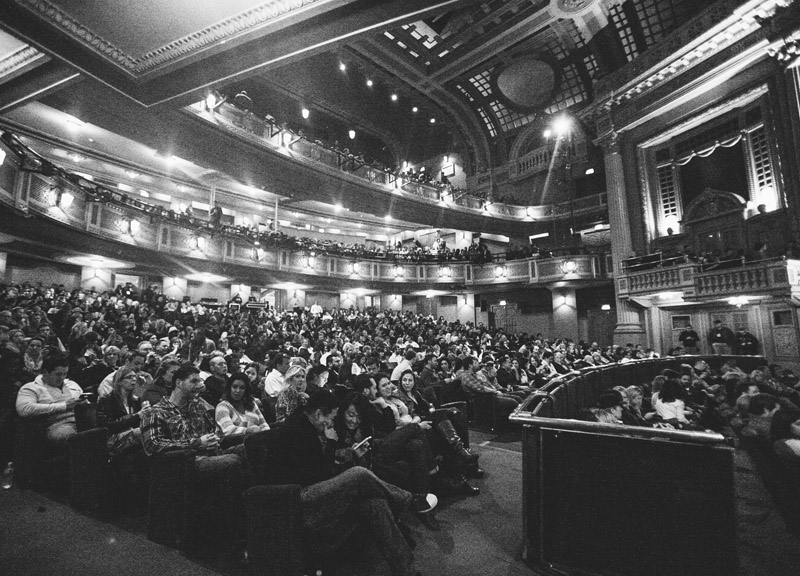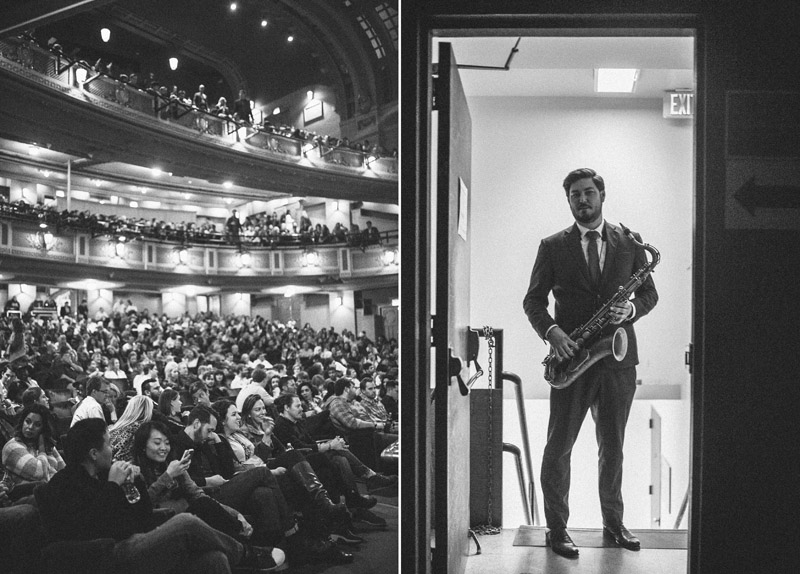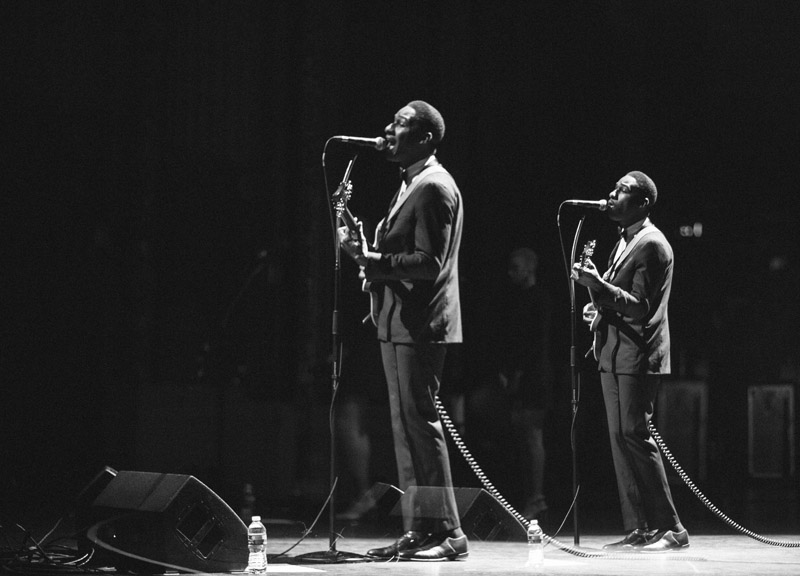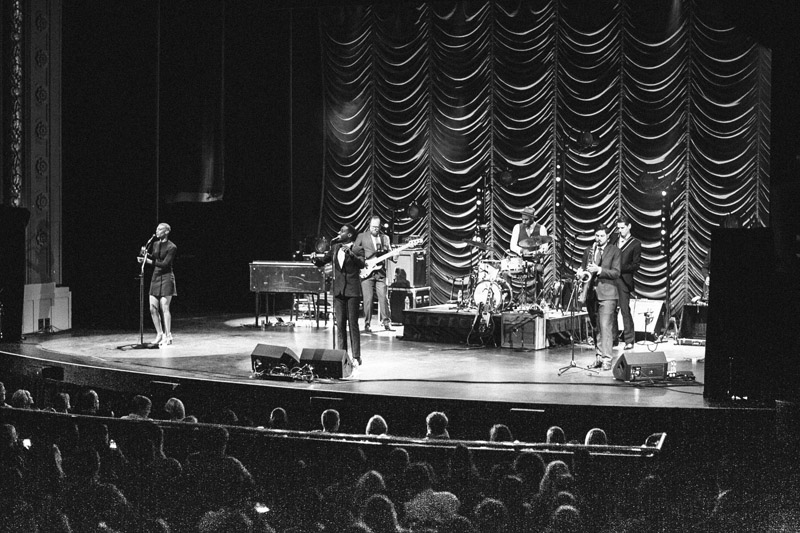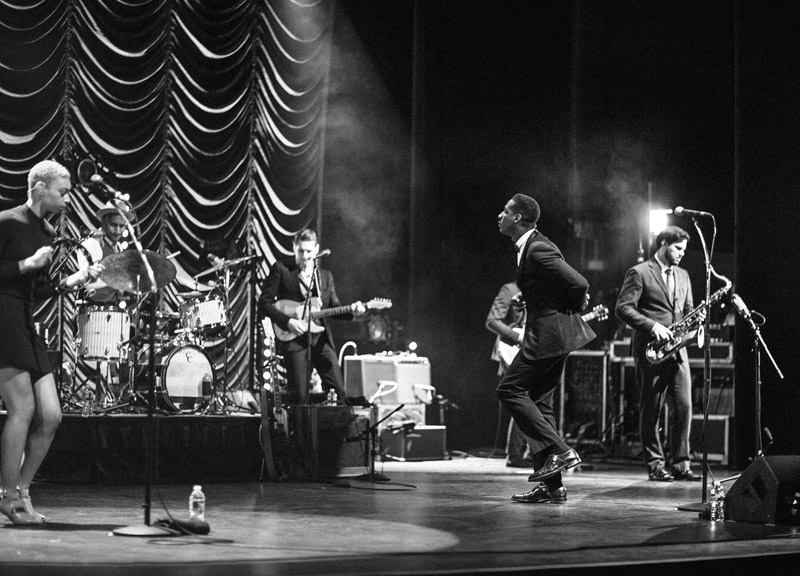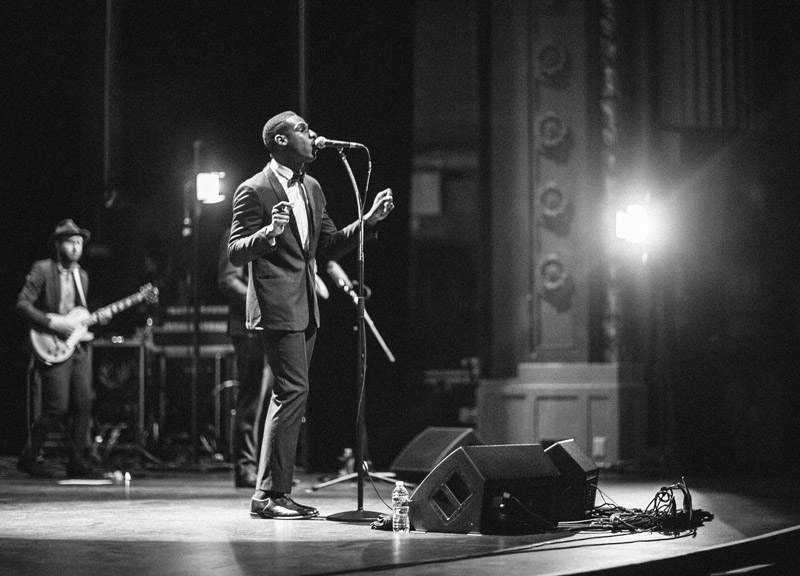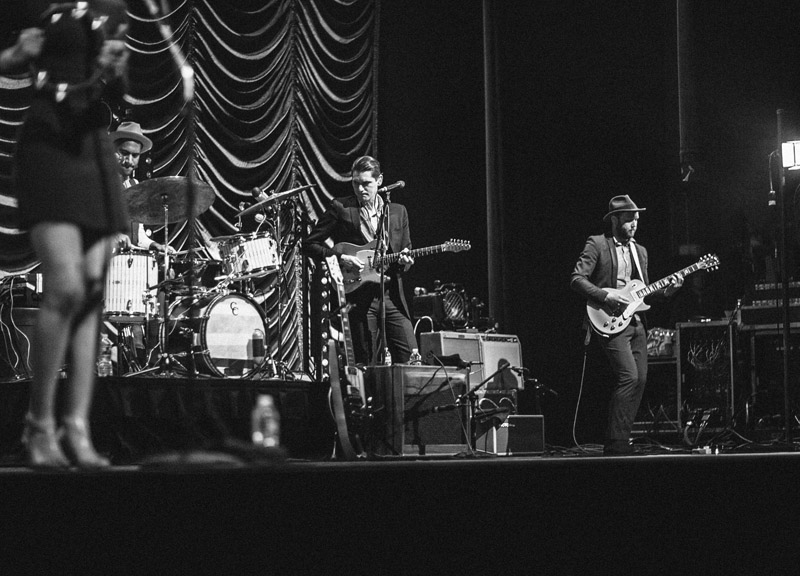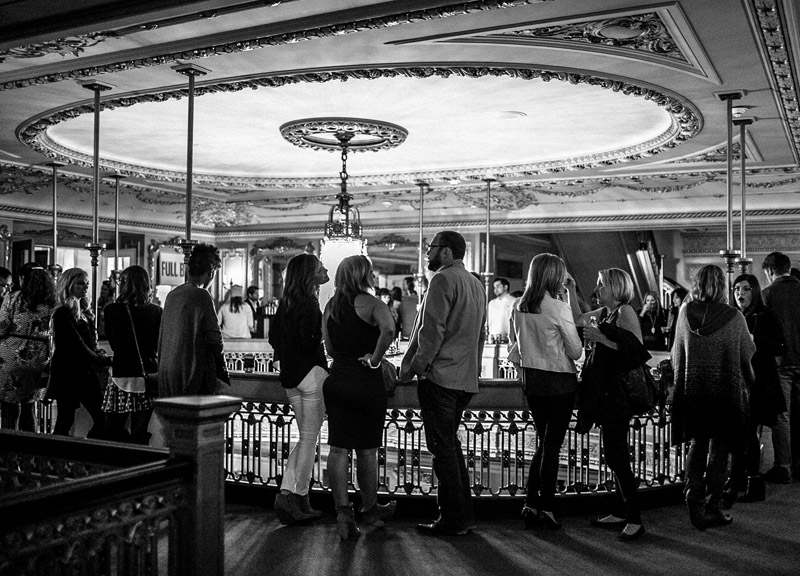Leon Bridges Ends A Breakout Year With A Near Perfect, Sold-Out Show At The Majestic.
Leon Bridges’ brand of music quite obviously has its eye squarely set in the past. His debut album, this summer’s Coming Home, is a wondrous exploration of vintage soul that absolutely doesn’t sound as though it’s from our contemporary post-technology age.
That’s what so wildly brilliant about it — he’s Sam Cooke reincarnated and, well, that era of music is great. Plus, it never hurts to re-purpose old things, so long as it’s good.
And Bridges is quite good. The former dishwasher from Fort Worth has ascended and ascended into one of the most noteworthy new musical acts today. His credentials include that aforementioned debut LP ascending to No. 6 on the Billboard 200, and being the focus of an Apple advertisement. Special cloth alert; that’s big talk. And to think, just a year ago Bridges was playing mostly solo acoustic gigs and open mic nights, with members of the Texas Gentlemen backing him whenever possible.
On Saturday night at the Majestic Theatre, however, Bridges came on home and played a sold-out show to a rabid and screaming crowd on the last night of his American tour after having become one of the year’s biggest national success stories. And those Texas Gentlemen? They were there once again, this time serving as the backing band for the evening’s opening act, Wesley Geiger.
The homecoming show is a well-worn trope that we all know and love, and this one fit the bill. With a glowing red velvet curtain dropped behind him, Bridges played the song he wrote about his mother, “Lisa Sawyer,” in front of his mother. He shouted out his friends and family and the region he calls home. (He opts for “DFW” to “North Texas,” if you were wondering.)
On his home turf, Bridges was mostly cool, calm and collected as he sang and danced. His stage banter was mostly dry, a surefire sign of his endearing shyness. He just says what’s on his mind, thanking everyone for coming out whatnot. Kanye West, he is not. Then again, that’s just a pillar of Bridges and his virtues; he’s first and foremost about The Music and, of course, style.
Interestingly, Bridges book-ended his proper set on this night with a pair of stripped down gospel soul numbers — “Doris” and “River” — that put the spotlight on his raspy voice and knack for the simple and effective. If memory serves correct, those are the only moments when he strapped on a guitar himself. For everything in between, he left the music up to his incredibly taut band, consisting of White Denim members, among others. They sounded great: This is music best served in a theatre venue, and each note by each musician — sang, strummed or drummed — fit snuggly in every nook and cranny of the venue and its attendees’ souls.
In September, NPR published an article that questioned whether or not Bridges’ brand of retro soul is needed in 2015. The piece had chatter about racial tensions in America and what it all means that Bridges’ music lacks overt social protest and that his art generally just ignores what’s going on in the country right now. The two critics also discuss Bridges’ “Coming Home” video and heap demerits at it because there’s a white girl and a barber they identify as white, along with a lot of other nonsense. In reality, if there’s anything in this world that’s perhaps less needed than “new old soul music,” it’s a pretentious discussion bogged down by needlessly academic platitudes about whether or not we need new old soul music. Every black musician does not need to be Kendrick Lamar.
Rambo, a photographer who has collaborated with Leon later took to Instagram and penned a response to the NPR article. In her response, Rambo, who played that video’s white girl, mentioned that the white barber, is — go figure — actually Hispanic. She also explains that the focus of the video was progress as opposed to overt nostalgia. Most notably, she recalled a time she spent asking Bridges why his music isn’t political and detailed his response. And that was? “I’m tired.”
The fact of the matter is that a lot of us are quite tired — and that focusing on music and art that’s expressed purpose is to simply be good isn’t just a novel idea, it’s medicinal.
Plus, to stake a claim that Bridges in some way divorces blackness from his music is simply untrue. At one moment on Saturday night, he asked everyone to look to their neighbor and say “I love you,” which undoubtedly is a staple of the black church in the South — or at least some version of it.
As this stage of his career as a rookie begins to come to a halt, it’ll be exciting to see what he does next. There were on this night a few glimpses into the future, like the new number he performed to start off his encore, “Pussy’ Footin’.” The song is an electrifying number that you just cannot help but dance to. Bridges was fantastic and triumphant and near perfect as he performed it.
My only true objection? With all that moving and shaking and contorting with the rhythm, he did not dab.
Leon Bridges should have dabbed.
